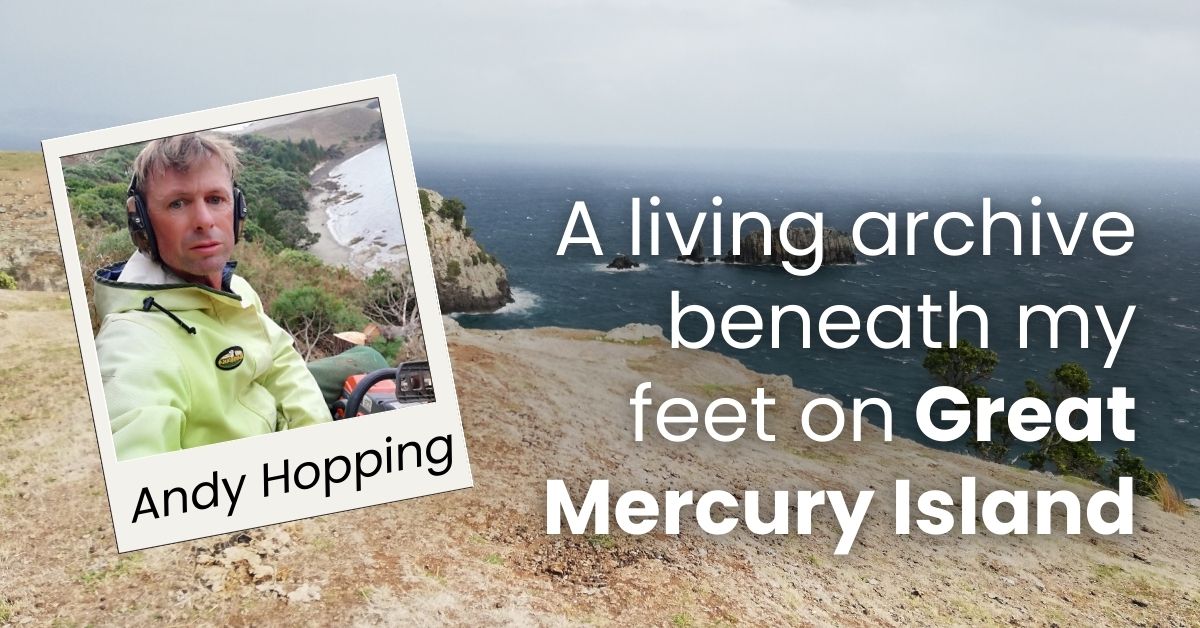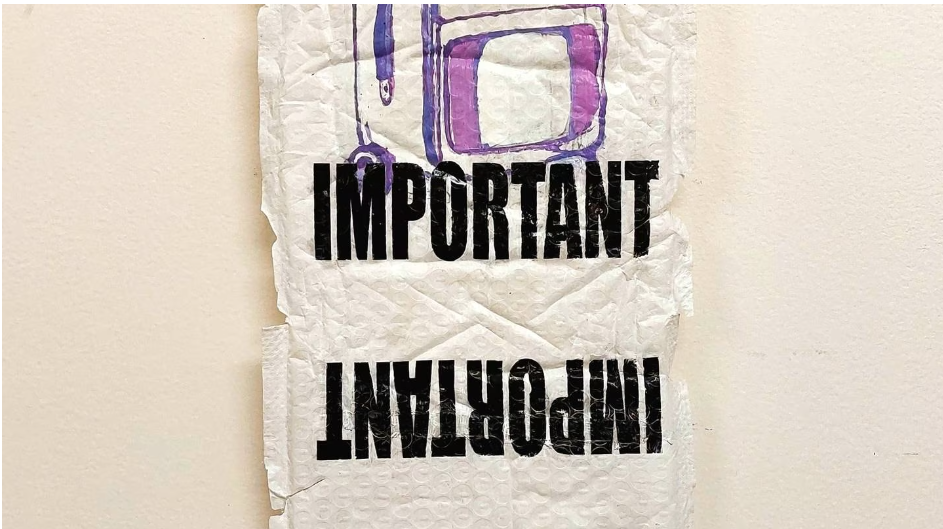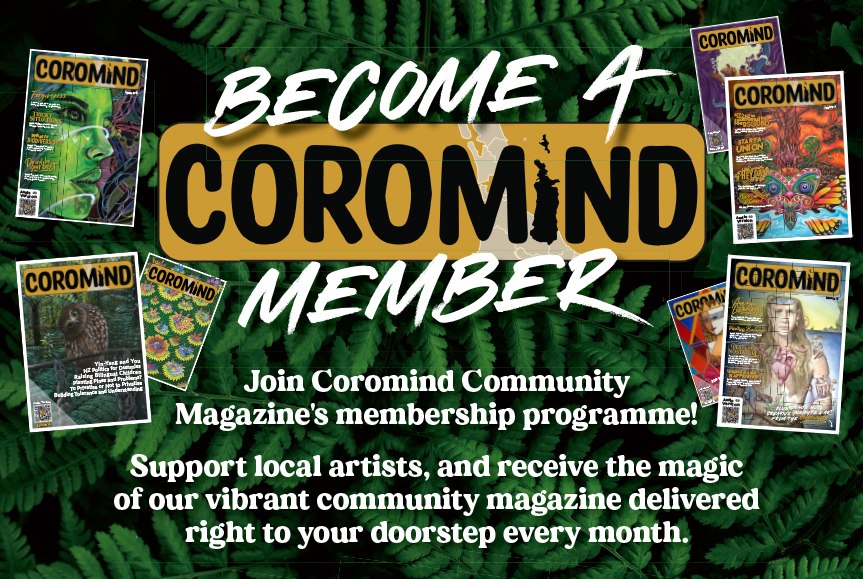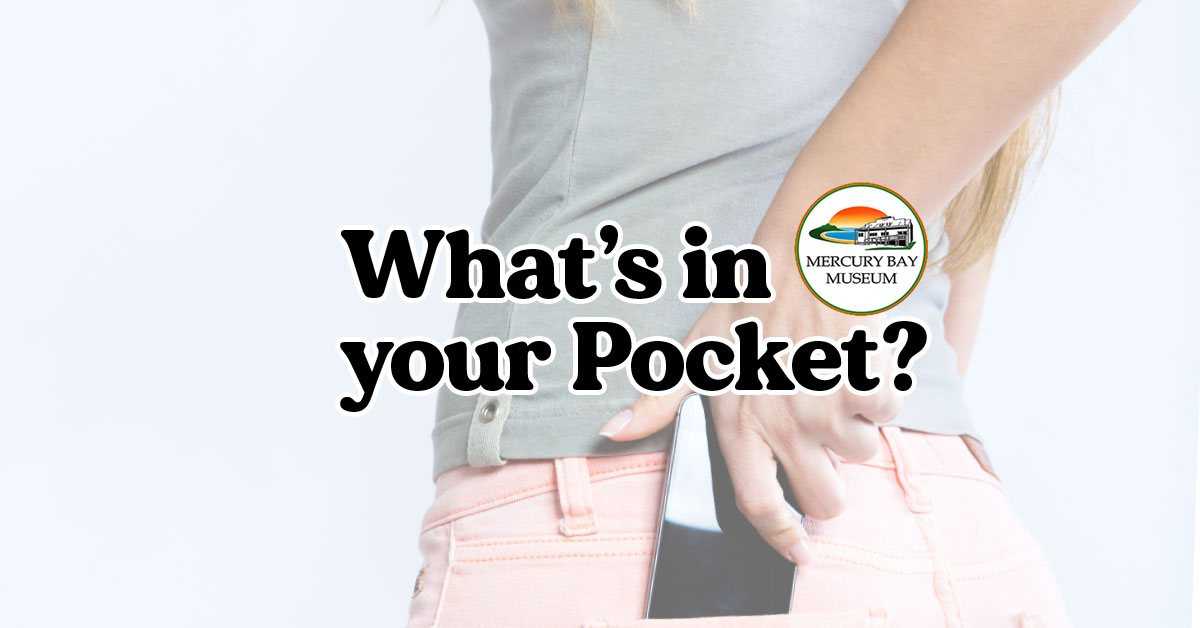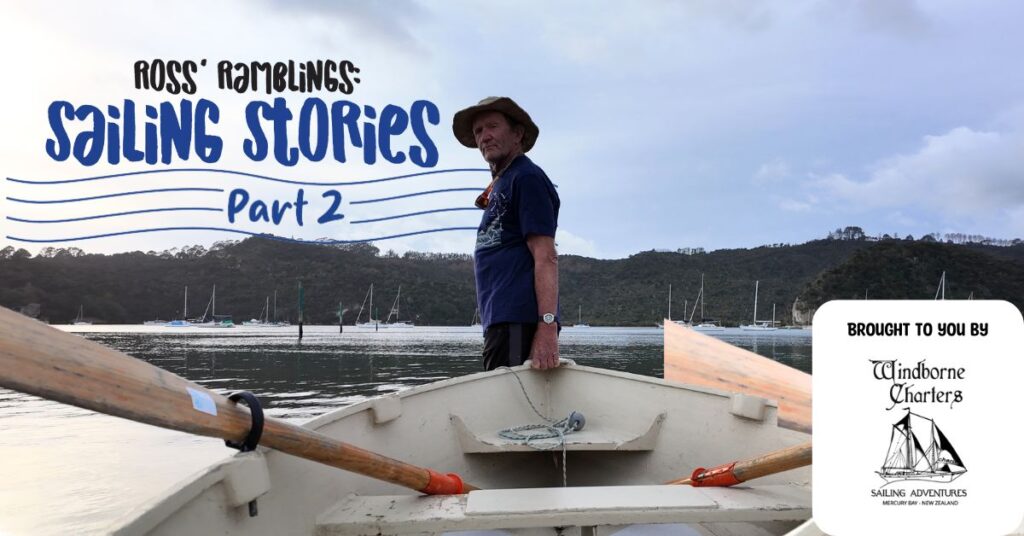
My French friends, Jacques and Marie and their two young children, who participated in the cricket match mentioned in Part 1, eventually left Aotearoa bound for New Caledonia where they stayed for some months before heading to Fiji. They invited me to join them to sail with them to Vanuatu, so I flew to Nadi and boarded their 40-foot yacht.
On arrival, I felt some tension between Jacques and his wife and later learned that he had had an affair while in New Caledonia and was still not over it. It’s hard to be on a boat in a confined space if relationships are not going well, so after the 3-day sail to Vanuatu I decided to leave the French family to their problems and hopped on a rusty old freighter which serviced the outer islands of Vanuatu every month. We stopped at tiny islands, far from other land with small villages home to 50 to 100 people. I could have stopped off at any one of them but finally chose a larger one in the Shepherd Islands group.
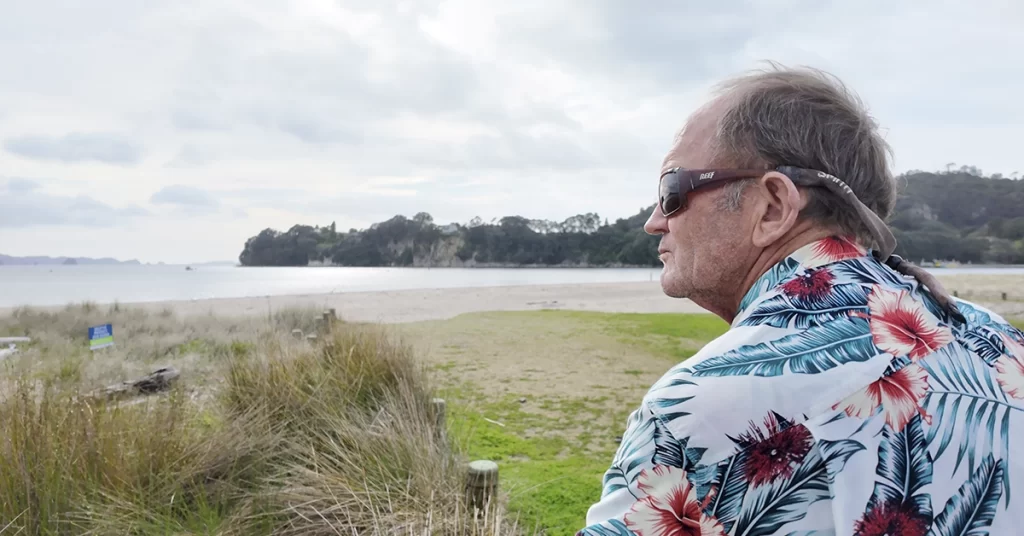
There I met the only foreigners on the island, a Scottish couple who were trying to start a small fishing industry under an aid organisation’s banner. A small runabout with a 40hp outboard, an ice making machine, a power generator and a shed had been donated, with the idea that the fish caught could be kept on ice and sent to Port Vila, the capital, for sale. This supposedly would have brought a lot more money to the island residents as the island waters were very deep and home to large tuna, wahoo, mahi mahi and marlin a few hundred metres offshore.
It seemed like a good idea but unfortunately the local fishermen lived a subsistence lifestyle, as had their ancestors, for thousands of years before them, and they weren’t overly enthusiastic about getting up and going fishing at dawn when the fish were at their hungriest. Nor were they used to meeting deadlines and quotas necessary for the enterprise to thrive. So, it was a frustrating time for the Scottish volunteers who were trying their hardest to help the local economy. Perhaps there were different values at play there, regarding lifestyle and motivation. I was not sure at the time whether or not the villagers wanted the fishing enterprise or whether a bureaucrat behind a desk in some foreign country thought that more money would be a good thing for the community. It was an unusual village of a few hundred people with a primary school, and a path dividing it with a church of different denominations on either side. I used to hear strange chants and other primal noises which I assumed to be religious rituals, while daily life in the village was still how I imagine it would have been hundreds of years ago, apart from the corrugated iron roofs, the odd radio and the well-maintained churches. When I returned to Aotearoa I sent a selection of fishing lures that my Scottish friends had requested. I hope the Vanuatu fish enjoyed the taste of NZ plastic.
Eventually Ruamoko, my first yacht, the 23 ft Wharram catamaran, became too small for me and the two members of my new family, Kimiko and baby Hanako. So, on a windless summer’s day at Wharekaho I took a prospective buyer out for a test sail. The lack of wind put a stop to any meaningful sailing but the pod of dolphins that surrounded us on that day must have impressed my crew and the next day I waved goodbye to that sturdy little craft as it set off for its new home at Puhoi, north of Auckland. I left a thank you note for the dolphins.
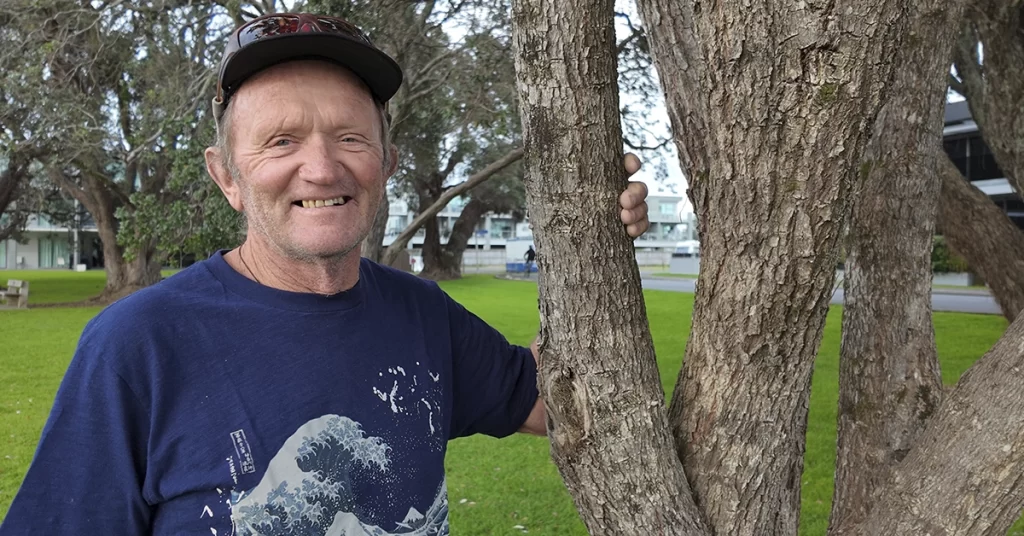
As fate would have it, my next sail boat appeared at exactly the same stretch of beach that Ruamoko had several years before. The 28 ft trimaran Jiwa was pulled up on the sand at Ostend Causeway on Waiheke Island, home to myriad multi-hulls and houseboats. I heard she was for sale and I contacted the owner, who told me there was already a conditional offer on her, but he would let me know if it fell through. He told me that he and his wife practised a form of Indonesian meditation and that Jiwa was an Indonesian word that means ‘soul’ or ‘spirit’. He also said that after they had named her, they realised that the letters of Jiwa comprised the first 2 letters of their names, Jill and Wayne. Strange how things happen.
Fortunately for me the conditional offer fell through. So, in early 1990 Wayne, Whitianga local Andy Hopping and I sailed Jiwa to her new home of Wharekaho and to this day she still lies there in favourable weather, in the shadow of Mount Maungatawhiri with Wharetaewa Pa at the other end of the beach.
I have done hundreds of trips in Jiwa, many to the Mercury Islands that lie a few kilometres off our coast. Ahuahu (Great Mercury Island), which some oral histories suggest was the original place of Polynesian settlement in Aotearoa, did, many centuries ago, support a large human population. It is the only island in the group on which you can land, the others having been designated as wildlife reserves. It is a perfect sailing destination, as many of you will know, with sheltered bays on both sides and Huruhi Harbour (Mercury Cove) providing a safe all-weather anchorage. Over recent years, a successful pest eradication program has facilitated an explosion of the bird population which in turn provides an eloquent dawn and daytime chorus to be enjoyed by the crews of anchored boats. Marine life also thrives in the pristine waters surrounding Ahuahu.
I remember being anchored in Parapara Bay just outside the Cove on January 8th 2021 with my sister Sally and her husband Alan on board. It was a calm sunny day and would have been my dad’s 99th birthday had he still been with us. While enjoying our morning coffee we suddenly noticed a fin coming towards us. A single large bottlenose dolphin slowly circled Jiwa once, brilliantly visible in the crystal-clear shallows, and then meandered back out to sea. Of course, we all thought of our dad, who had definitely been a human while on earth. He didn’t have fins or a tail and his nose was a lot shorter than a dolphin’s. But could he have paid us a birthday visit as a cetacean, or was synchronicity just weaving a mysterious pattern once again? I will leave you to ponder that one …
Words by Ross Liggins
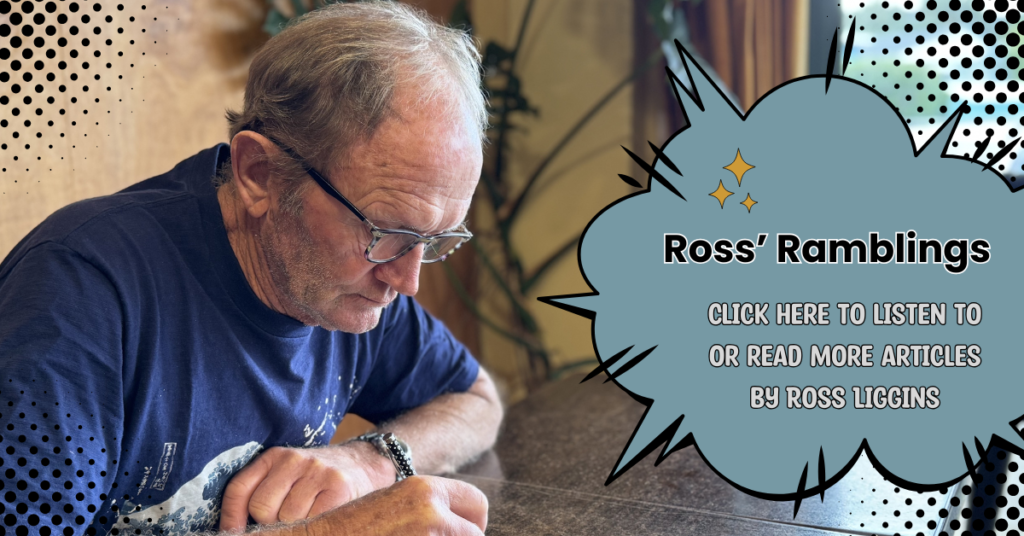
Coromind: Coromandel’s Collaborative Magazine

Help us take Coromind Magazine to new heights by becoming a member. Click here
Change the Weather for Your Business: Advertise with Us.
Advertise your business in the whole Hauraki Coromandel in the coolest Coromandel Art Magazine, from Waihi Beach/Paeroa /Thames up to the Great Barrier Island.
Advertise Smarter, Not Harder: Get in Touch



